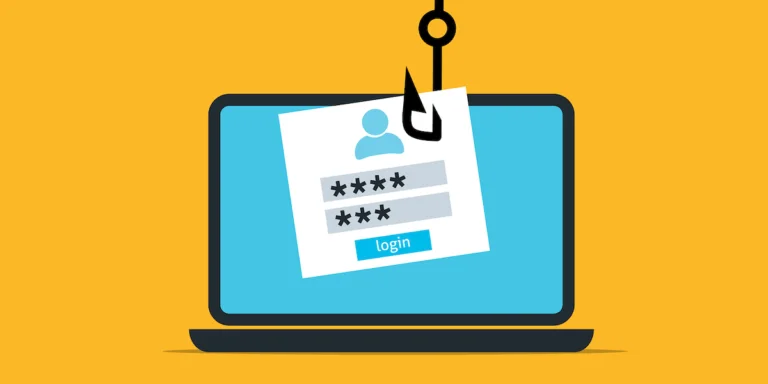In today’s rapidly evolving digital landscape, cybersecurity is no longer a static defense system but a dynamic field requiring intelligent, real-time responses. The integration of Artificial Intelligence (AI) into cybersecurity has become a game-changer, enabling organizations to detect, analyze, and respond to threats faster and more efficiently than ever before. From automated threat detection to predictive analytics, AI is revolutionizing how we protect sensitive data and infrastructure.
But with great power comes great responsibility. While AI strengthens security defenses, it is also being weaponized by cybercriminals to develop more complex, evasive attacks. In this blog, we delve deep into how AI is transforming cybersecurity—for better and for worse—and what this means for the future of digital safety.
The Role of AI in Cybersecurity
AI in cybersecurity is primarily powered by machine learning (ML), natural language processing (NLP), and deep learning. These technologies enable systems to learn from data, identify patterns, and make decisions with minimal human intervention.
Here are some of the key functions AI performs in cybersecurity:
1. Threat Detection and Prevention
AI-powered systems can analyze massive datasets in real-time to detect anomalies that may indicate a cyberattack. Unlike traditional systems that rely on predefined rules, AI systems can learn from past incidents and improve their detection capabilities over time.
Example: AI models can detect phishing emails by analyzing language patterns, links, and sender behavior—well before users fall prey to them.
2. Network Behavior Analysis
AI can learn the normal behavior of a network and flag unusual activity such as large data transfers, suspicious login attempts, or traffic from unknown IPs. This is especially useful for detecting insider threats or zero-day vulnerabilities.
3. Automated Response and Incident Management
Once a threat is detected, AI can automatically initiate responses like isolating affected systems, blocking IP addresses, or alerting human analysts. This reduces the response time from hours to seconds.
4. Natural Language Processing (NLP) for Threat Intelligence
AI uses NLP to scan and interpret massive amounts of unstructured data from the dark web, social media, or hacker forums to predict and prevent potential attacks.
AI-Powered Tools in Cybersecurity
Many cybersecurity companies have adopted AI and ML in their tools and services. Here are a few examples:
- Darktrace: Uses unsupervised ML to detect and respond to threats in real-time.
- IBM QRadar: Incorporates AI for advanced threat detection and incident forensics.
- CrowdStrike Falcon: Employs AI to analyze billions of events and detect breaches early.
The Dark Side: How Cybercriminals Use AI
While AI is a powerful defense tool, it is also a double-edged sword. Cybercriminals are now using AI to create advanced persistent threats (APTs) and evasive malware.
1. AI-Powered Phishing Attacks
Attackers use AI to craft highly personalized phishing emails by scraping public data from social media and other sources, increasing the likelihood of success.
2. Deepfakes and Social Engineering
AI-generated deepfake videos or audio can impersonate executives to authorize fraudulent transactions—a rising threat in corporate cybersecurity.
3. Automated Vulnerability Scanning
Hackers use AI to scan for weaknesses in systems more efficiently and at a larger scale than human hackers can.
Benefits of AI in Cybersecurity
Despite the risks, the advantages of AI in cybersecurity are substantial:
- Speed: AI can process and analyze data far faster than human analysts.
- Scalability: AI can monitor large networks and millions of endpoints simultaneously.
- Consistency: Unlike humans, AI doesn’t suffer from fatigue or overlook threats due to distractions.
- Proactivity: AI systems can predict and prevent threats before they occur using historical and behavioral data.
Challenges and Limitations
While AI enhances cybersecurity, it is not without challenges:
- False Positives: Poorly trained models may misidentify benign activity as malicious, causing unnecessary disruptions.
- Bias and Data Quality: If the training data is biased or incomplete, AI systems may make flawed decisions.
- Cost: Implementing AI solutions can be expensive and require specialized skills.
- Adversarial Attacks: AI models themselves can be manipulated using adversarial inputs to behave incorrectly.
Future Outlook: A Human-AI Collaboration
The future of cybersecurity will not be about AI replacing humans, but rather enhancing human capabilities. AI can handle the heavy lifting—analyzing logs, spotting patterns, and responding instantly—while human experts focus on strategic decision-making, complex investigations, and ethical oversight.
Companies should also adopt a “zero trust” architecture, continuous monitoring, and AI-powered threat hunting to stay ahead of cyber adversaries.
Conclusion
Artificial Intelligence is a powerful ally in the fight against cybercrime, offering unparalleled capabilities in threat detection, response, and prevention. However, it also presents new challenges and threats that must be addressed with careful implementation and ethical considerations.
As both defenders and attackers harness AI, the cybersecurity battlefield becomes more complex. Organizations must stay vigilant, invest in robust AI-driven tools, and foster collaboration between human intelligence and machine efficiency. In this AI-driven era, cybersecurity is no longer optional—it’s a critical pillar of digital resilience.
Tags: #AI #Cybersecurity #MachineLearning #ThreatDetection #InformationSecurity #CyberDefense #EthicalAI
At INFOCUS-IT, we specialize in advanced cybersecurity solutions—from threat detection and incident response to compliance and risk management. Whether you’re a small business or a large enterprise, our experts are here to protect what matters most.
Book your vulnerability scan now → infocus-it.com
📩 Support: support@infocus-it.com
📞 Helpdesk: +91-8178210903
hashtag#vapt hashtag#owasp hashtag#bugbounty hashtag#ethicalhacking hashtag#infocusit

